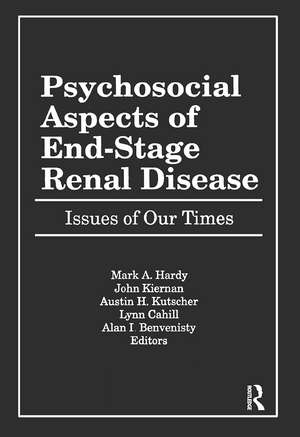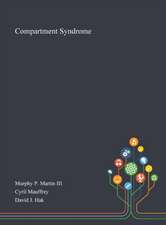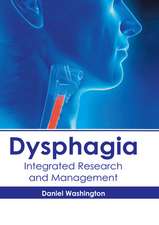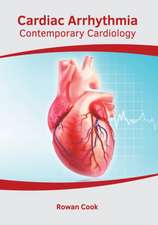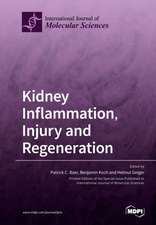Psychosocial Aspects of End-Stage Renal Disease: Issues of Our Times
Editat de Elizabeth Clark, Mark Hardy, John Kiernan, Austin Kutscher, Lynn Cahill, Alan Benvenistyen Limba Engleză Hardback – 29 aug 1991
Five comprehensive sections devote special attention to the different areas of concern for the psychosocial well-being of end-stage renal disease patients. The impact of renal disease on family relationships is covered by examining issues of family responses and coping measures such as marital and family reactions to home and hospital dialysis treatment. Ethical issues in treatment are explored, including the ethics of treatment refusal and a Jewish perspective on kidney transplants. Relations between staff and patients and a timely section on renal disease and special populations, particularly the elderly and AIDS patients, make up the final two sections of this informative volume. Professionals in all allied health disciplines will benefit from this important volume as it demonstrates a model approach, if not the definitive one, for the treatment of the psychosocial aspects of end-stage renal disease as well as other chronic illnesses.
| Toate formatele și edițiile | Preț | Express |
|---|---|---|
| Paperback (1) | 199.31 lei 6-8 săpt. | |
| Taylor & Francis – 12 oct 2016 | 199.31 lei 6-8 săpt. | |
| Hardback (1) | 198.45 lei 6-8 săpt. | |
| Taylor & Francis – 29 aug 1991 | 198.45 lei 6-8 săpt. |
Preț: 198.45 lei
Preț vechi: 363.70 lei
-45% Nou
Puncte Express: 298
Preț estimativ în valută:
37.97€ • 39.65$ • 31.43£
37.97€ • 39.65$ • 31.43£
Carte tipărită la comandă
Livrare economică 05-19 aprilie
Preluare comenzi: 021 569.72.76
Specificații
ISBN-13: 9781560241492
ISBN-10: 1560241497
Pagini: 232
Dimensiuni: 148 x 210 x 18 mm
Greutate: 0.41 kg
Ediția:1
Editura: Taylor & Francis
Colecția Routledge
Locul publicării:Oxford, United Kingdom
ISBN-10: 1560241497
Pagini: 232
Dimensiuni: 148 x 210 x 18 mm
Greutate: 0.41 kg
Ediția:1
Editura: Taylor & Francis
Colecția Routledge
Locul publicării:Oxford, United Kingdom
Public țintă
Professional Practice & DevelopmentCuprins
ContentsIntroduction: Communication Between the Disciplines in Care of Patients With End-Stage Renal Disease
- Part I: Renal Disease and the Family
- End-Stage Renal Disease: Family Responses
- Families Coping With the Multiple Crises of Chronic Illness
- Is Ignorance Bliss? ESRD Patients’ Reactions to the Question of Spousal Fidelity
- Marital and Family Characteristics of Home and Hospital Dialysis Patients
- Part II: Psychosocial Dimensions of Renal Disease
- Psychological and Social Adaptation of Capd and Center Hemodialysis Patients
- Artificial Organs, Organ Transplantation, and Dealing With Death
- An Integrated Approach to Psychotherapy With the ESRD Population: A Case Presentation
- Illness Intrusiveness and the Psychosocial Impact of End-Stage Renal Disease
- Helping Patients Cope With the Loss of Renal Transplant
- Part III: Ethical Issues in Treatment of Renal Disease
- Dilemmas in Dialysis: Two Bioethical Case Studies
- Passions in the Arena
- Kidney Transplants: A Jewish Perspective
- Promoting Organ Donation Among Memorial Society Members
- Part IV: Staff/Patient Perspectives in Care of Renal Disease
- Dialysis Staff Attitudes Toward Providing End-Stage Care
- Implications for Clinical Anthropology: Skills for Nurses to Use in Dealing With Terminal End-Stage Renal Disease (ESRD) Patients
- Patient Perceptions of the Hemodialysis Regimen
- AIDS and End-Stage Renal Disease: Issues of Our Times
- Psychosocial Issues in AIDS/ESRD
- Psychosocial Factors in the Care of the Geriatric Nephrology Patient
Notă biografică
Hardy, Mark; Kiernan, John; Kutscher, Austin; Cahill, Lynn; Benvenisty, Alan
Descriere
This thoughtful new book presents strategies for helping end-stage renal disease patients and their families deal with the psychosocial aspects of the chronic long-term illness. Technological advances in the treatment of this disease have offered much hope for improved quality in living which has led caregivers to have a greater concern for preserving the quality of life of their patients. In Psychosocial Aspects of End-Stage Renal Disease leaders in the field of many disciplines share knowledge and reveal problems that are still evident to them in the confrontation with this potentially fatal illness. Professionals in all allied health disciplines will benefit from this important volume as it demonstrates a model approach, if not the definitive one, for the treatment of the psychosocial aspects of end-stage renal disease as well as other chronic illnesses.
